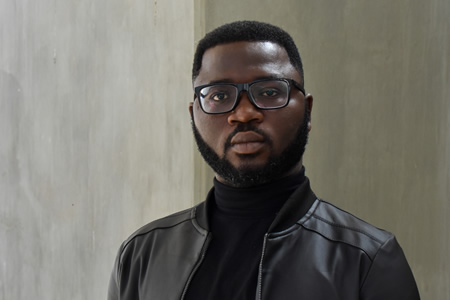The Centre for Human Rights, Faculty of Law, University of Pretoria (Centre), commends the African Commission on Human and Peoples’ Rights (African Commission) on taking a meaningful step forward in the pursuit of equality and justice for intersex persons in Africa by for the first time in its history adopting a legal text on the rights of intersex persons in Africa. This text takes the form of a resolution titled ‘Resolution 552 on the Promotion and Protection of the Rights of Intersex Persons in Africa’. In it, the Commission calls on African states to protect the rights of intersex children by ending non-consensual genital normalising practices and to promote intersex person’s rights through education and sensitisation.
Resolution 552 was adopted on 7 March 2023, at the African Commission’s 74th (private) Ordinary Session. The adoption of this resolution follows the launch of a report on the human rights challenges to intersex persons at the Commission’s 73rd (public) Ordinary Session, held from 21 October to 10 November 2022. This report set out the results of a study undertaken by the Centre, together with intersex organisations from across Africa (Intersex Persons Society of Kenya (IPSK), SIPD-Uganda, Rainbow Identity Association (Botswana), Intersex Society of Zambia (ISZ) and Intersex Community of Zimbabwe (ICoZ)). In this report, the Commission is encouraged to adopt a resolution on the issue. It also contains a draft resolution with recommendations to states.
The resolution is a positive step towards addressing the significant challenges of intersex people across Africa. Lack of awareness about the existence of intersex persons has contributed to experiences of human rights violations including unnecessary genital ‘normalising’ surgeries on minors, a lack of appropriate legal recognition and poor birth registration processes, discrimination in the justice system, infanticide, baby dumping, and various forms of discrimination in other spheres of life.
This resolution is a guiding measure toward addressing legislative gaps and the lack of representation of intersex persons in law. While this is a significant positive measure, the Centre notes that the diversity of intersex bodies is a naturally occurring congenital development, relating to genitalia, chromosomes and hormones. Each intersex individual’s experience is different, with some not being aware of their intersex status until later in adulthood. It is important to acknowledge that while many struggles are intersectional, intersex identities should not be pathologised as an ‘abnormal’ medical condition or illness as this contributes to invasive procedures done on intersex persons without their consent.
The Centre urges African governments to take cognisance of the resolution and undertake measures to ensure that intersex people are included in their policies and programmes. We also call on civil society organisations to continue their advocacy efforts in this regard and to work towards ensuring that intersex people are no longer marginalised in society and that their dignity is upheld.
The Centre further appreciates the efforts of Chair of the African Commission, Commissioner Remy Ngoy Lumbu, former Chair and member of the Commission, Commissioner Solomon Dersso, and former Commissioner Lawrence Mute, who were invested in this cause right from the beginning. The Centre further appreciates the efforts of researcher Tapiwa Mamhare, who led the Centre’s research and advocacy efforts at the African Commission. The Centre also values the contributions of human rights clinical students on the Centre’s Masters in Human Rights and Democratisation in Africa programme, who contributed to the work over the years. The Centre also deeply appreciates the contributions to this process of intersex human rights defenders and allies who include Delphine Barigye, Julius Kagwaa, James Karanja, Mphatso Sakala, Ryan Wangui, Ronnie Zuze and Advocate John Chigiti.
For more information on the rights of intersex persons in Africa, contact:

Professor of International Human Rights Law
Tel: +27 (0) 12 420 3228
Fax: +27 (0) 86 580 5743
frans.viljoen@up.ac.za

Tel: +27 (0) 12 420 3151
Fax: +27 (0) 86 580 5743
ayodele.sogunro@up.ac.za


